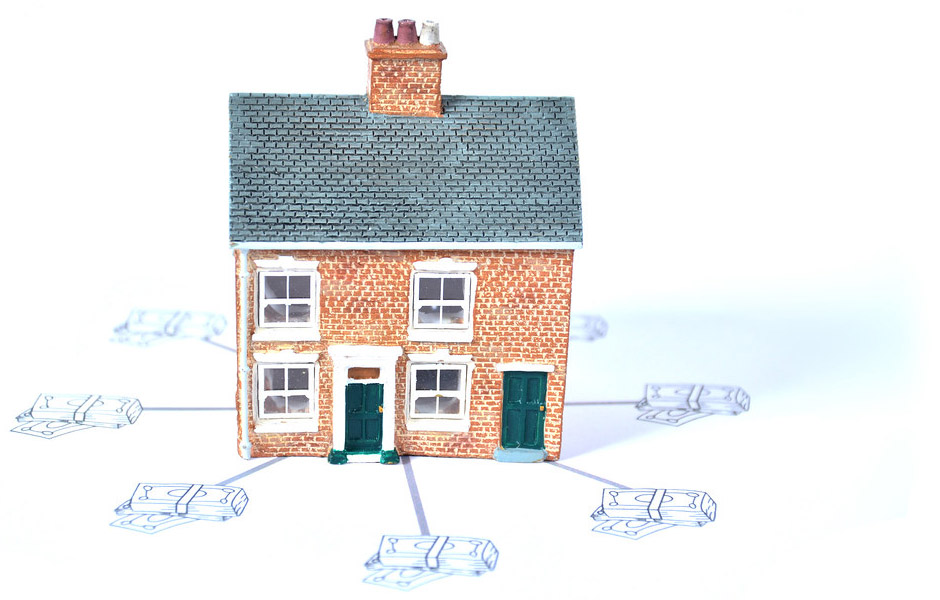Love the idea of investing in real estate, but don’t have $30,000 for a down payment and closing costs?
Try these three real estate crowdfunding investments, that let you invest as little as $10 or $100. You get the diversification away from the stock market, along with strong income yield and returns, without the hefty upfront investment.
Video Broadcast Version
Audio Podcast Version
Also available on iTunes, Stitcher, and wherever else you listen 🙂
Resources Mentioned in This Podcast & Video:

Deni: Welcome to Spark Rental Live, Facebook Live and podcast. Hey, Brian, how are you doing in your blue room?
Brian: I am doing Great. Yeah, in my blue room here.
Deni: So, I’m glad everybody is joining us. Please let us know where you’re joining us from. And at any point, if you have questions, pop them in the chat. We’ll get to them. They don’t even have to pertain to the subject. And if you have any ideas for subjects, throw them in there too. We could use some ideas.
Brian: Always looking for new ideas.
Deni: Oh, big time. So last time last week, we talked all about HELOCs for down payments. There were a lot of people that enjoyed that and got a lot of feedback on that one. That was a good subject. And this week we’re going to be talking about crowdfunding and real estate investments. So, I find this to be interesting. I like when I learn with all of you from Brian, and I also want to let you guys know that we are doing a free webinar next week, and it’s about mobile home parks, which is interesting because it’s higher returns, less risk, and repairs. And there’s a lot of people that make quite a lot of money in mobile home park. So, it’s a good, another good thing sector to kind of learn about and maybe invest in.
Brian: Yeah, and we’re bringing on Frank Rolfe from Mobile Home University next week to teach you guys that webinar. Frank Rolf is the fifth largest mobile home park owner in the U.S., so he knows what he’s talking about.
Deni: Very cool.
Brian: He’s been around this block once or twice.
Deni: So, without further ado, let’s jump right in here, and Brian, give us a bit of a background on what real estate crowdfunding is.
Brian: Sure. So yes, today we wanted to walk through three real estate crowdfunding platforms that you can invest in with as little as $10 or, in one case, $100, because it makes it so much easier to invest, right? I mean, everyone has ten bucks lying around, but a lot of people who are new to real estate crowdfunding don’t even understand how it is, how it works or what it is and how it works. So, there’s really three different models that real estate crowdfunding platforms typically take. So, one of them is the REIT model, similar to public real estate investment trusts, where you have a pooled fund, basically where the fund owns either a bunch of properties or it owns a bunch of debts that are secured against real estate. And that model, yeah, it’s very similar to publicly traded REITs with a few important differences. The most obvious one is that they don’t trade on public stock exchanges, you buy them directly from the company. So that’s one model. It’s the REIT model. Another model is fractional ownership in individual properties where you are actually buying in as a partial owner of the property, almost like a partner on the deal to buy a property. And then the third model is crowdfunded real estate loans, where you are putting money towards a loan that is secured against a specific property. And we can we’ll talk more a little bit more about all of those three models, but those are the three different models, basically for real estate crowdfunding.
Deni: So, you said we can get involved in this with a hundred dollars or less. Can you talk about some of those platforms?
Brian: Yeah. So, there are three platforms where you can invest $100 or less. And I actually have money in all three of them, so I can speak from firsthand experience here about all three of these platforms.
Deni: I have I use; I have tried one. I’m going to try the others.
Brian: So, the first of these is a ground floor, and they follow the crowdfunded loan model where you log in and you can see all of the different loans that they have that they’re still raising money for. These are loans against real property, and they lend money to real estate investors who are buying Fixer-Uppers basically. so, you can pick and choose any one of these loans and put as little as $10 towards any one loan. And you, you become the lender basically for these properties. And when the borrower pays back the loan, you get your money back with interest. Now, because these are hard money loans, basically, you know, these are like purchase rehab loans. They’re short-term loans. They’re typically six months to a year. So that’s one of the things I love about the ground floor is that it’s the only short-term real estate investment that I can come up with other than buying a publicly traded REIT. You know, most I mean, real estate is inherently illiquid, right? You know, it doesn’t have much liquidity. It’s very hard to buy and sell. It takes a long time across a bunch of money. But ground-floor lets you indirectly invest in real estate in the short term, you know, as little as, like six months.
Brian: So, yeah, ground floor is great. I love it. I’ve had very good experiences with ground floor, so that’s the first one. Minimum investment $10. The second platform is fund Dries also has a minimum investment of $10. Now, Fund Dries follows the REIT model. So, you’re buying into a fund or actually a series of funds that are like its pooled funds and the fund owns a bunch of different or each fund owns a bunch of different properties, and you’re basically just getting a combined return on those properties. So, it’s an easy way to diversify. It gives you exposure to a bunch of different properties. Fund dries They do a mix of mostly residential properties at the commercial scale, like the investment, or apartment buildings. But yeah, it’s apartment buildings all over the U.S., basically, and a few smaller multifamily and single-family rentals as well. And they also do own some real estate secured debt. But for the most part, they are buying properties themselves, and you buy into a fund that owns all those properties.
Deni: And. Well, sorry. So, what about real estate crowdfunding platforms for non-accredited investors?
Brian: There is another real estate crowdfunding platform that does let you invest with a little bit of money that’s arrived. And arrived lets you invest with as little as $100. So, they follow the model where you buy fractional ownership in a rental property. So, for 100 bucks, you can put $100 towards a rental property and become an owner of that rental property, which is the cheapest you’ll ever be able to do that, right? You know, as we talk about all the time, you know, you still when you buy a rental property by yourself, even if you take out a loan to buy it, you’re still looking at putting down 20 percent, typically sometimes 30 percent, as a down payment plus closing costs plus any repair or renovation costs carrying costs until you find a renter. So, it’s expensive to buy individual rental properties, which is what makes the arrived model so attractive you can spread if you have a thousand bucks to invest. You can spread those thousand dollars across 10 different rental properties and get that easy diversification. So, you know, if something goes wrong with one of those properties, you still have nine other properties that are performing well. So arrived is a pretty cool platform.
Deni: Now with these platforms, can you? I’m assuming you log into your account, and can you see graphs and all of those fun stuff that you see on some of the other stock, you know, trading platforms so you can see how your investments are doing?
Brian: You can. So, I was telling Deni before this, before our broadcast that I was, I just wrote, written a review of arrived and took a little video, a screenshot of a video of my account and me going through and buying shares in a property. And, you know, all the different data that they show you. Unfortunately, my microphone was muted for some reason. So, we’re going to have to rerecord that and rebuy shares for that demo video. But yeah, so they’ll show you the last 10 years in appreciation for that zip code in Zillow chart. They’ll also average out the last 20 years of appreciation for that zip code to show you the historical appreciation and the average annual appreciation in that zip code. They also show you the historical data for cash flow along with, you know, all the details about the property, the purchase price, the market rents, you know, the closing costs, you know, all of the numbers. So yeah, no, it’s a great platform. And you know, by the way, it’s important that we differentiate here between accredited and non-accredited investors because with real estate crowdfunding platforms, most of them require you to be an accredited investor, which basically means you have to be a wealthy investor. Bare minimum net worth of a million dollars or you can meet the requirement with income if you’re unmarried, that’s $200000 a year in income. If you’re married, that’s $300000 a year in combined income. So most real estate investing, or crowdfunding platforms do require you to be an accredited investor. However, there are seven that I know of that allow nonaccredited investors to participate in and invest.
Brian: So, these three degrees covered ground floor fund rise and arrived. They all allow nonaccredited investors. And you know, we can real quick go through the other four real estate investing platforms that also allow a nonaccredited investor. Now their minimum investment is higher than $100. So those first three we talked about, that’s $100 or less minimum investment. These other four the minimum investment is higher. So DiversyFund has a $500 minimum investment that is a long-term growth REIT that they offer. There are no dividends or cash flow with that. It’s all just aggressive growth. They’re reinvesting every penny of profit back into buying more properties and building their portfolio. The next one is motive, and they have a $1000 minimum investment. They have a couple of different REITs you can invest in. Streetwise has a $5000 minimum investment. I do have some money invested with streetwise. They specialize in commercial properties and specifically office buildings and mixed-use buildings. So. Yeah, unfortunately, they raised it was $1000 previously in the last year, they bumped up to $5000 minimum. But they have a pretty consistent eight to nine percent annual dividend. They have a high dividend, which is great. None of these are equitable. I mean, they all expect you to hold your shares hold on these five years. And that is a downside of these. And then the seventh and final real estate investing crowdfund is realty mogul. They also have a $5000 minimum investment, and they have a couple REITs as well.
Deni: Okay. What would you say overall is the risk? Of like some of the like the $5000 streetwise.
Brian: I mean, you know, there’s risk in any investment, of course, the risk with streetwise, you know, since they specialize in commercial buildings and specifically office buildings, you know, if no one ever goes back to in-person work in office space, then that’s a risk, right? But you know, more broadly, with these real estate crowdfunding investments, you know, the real risk is if there were a housing market collapse the way that there was in, say, 2008, then you would see some serious risk with any of these platforms. Now that being said, because real estate has intrinsic value, you’re not going to lose all of your money, right? I mean, unless the CEO takes everyone’s money and runs off to Mexico or something like but no, which they can’t do anyway because the money is tied up with liens. And so, yeah, I mean, unlike, say, a stock or a corporate bond, you know, those are paper assets that, you know, theoretically, the company could disappear. But because this money is secured against real estate, that real estate, the value isn’t going to go to zero, right? It might. It could drop by 20 percent if there were a terrible housing market crash. But that would still mean losing 20 percent of your money rather than losing 100 percent of your money.
Brian: So, I mean, I actually do think that the risk is very manageable for these. And in some cases, I think the risk is a lot lower than in the stock market. So, we actually published an article in our blog not that long ago about can you replace the role of bonds in your investment portfolio with real estate like can Real Estate serve the same role that bonds fill. And I believe that they can, particularly for non-retirees, you know, for younger adults, people with a little bit more risk tolerance. I don’t think you have to put up with the super low returns that we’ve all been receiving on bonds for the last 20 years. I think real estate can fit that sort of that same role. You do have to, you know, it helps to know what you’re doing so that you can assess the risk yourself. But I feel pretty good about any of these platforms as being not correlated with the stock market, right? So, you do get true diversification value, and all being secured against real property. So, they’re not going to just evaporate overnight. You know, they have intrinsic value that can’t just disappear.
Deni: Very cool. I did put a link to that article in the chat if anybody wants to check it out.
Brian: Oh, well, thank you. Now can we add a link here in the chat to where people can register for the Mobile Home Park Investing webinar that is going to be next Thursday. The 27th at 2:00 p.m. Eastern is when we’ll be hosting that, that free webinar with Frank Rolfe. So, we’ll put a link to that in the chat here. And yeah, as a quick overview of what we talked about today. So, ground floor minimum investment of $10. Those are loans secured against real estate fund dries Those are mostly residential REITs. The minimum investment $10. Arrived is fractional ownership in rental properties. It’s a minimum investment of $100. Diversyfund has a $500 minimum investment. It was your long-term growth REITs. Motive $1000 minimum investment also long-term REITs. Streetwise, five thousand minimum investment and those at commercial office space REITs and realty mogul they’ve got a couple of different REITs, also a $5000 minimum investment. And with the exception of ground floor, these are all five-plus-year investments. Ground floor is six months to one year. Deni anything else you want to go over today?
Deni: I don’t think so. Did you see my little mess up there?
Brian: Yeah.
Deni: I love technology when it sneaks up on me. I put the link in for the webinar and made a mistake and put it on our faces, sorry.
Brian: I didn’t even notice I was looking at our show notes.
Deni: Now that’s it. I just think this is great to diversify, especially how everything is right now, and you talk about that all the time, and this is another great way to expand your portfolio.
Brian: Yeah. And you know, as one other quick note here next Tuesday for our Facebook Live and our podcast will be hosting Dan Greve, who is a member of our audience normal guy who he happened to reach out to me and let me know that he’s using HELOCs against some of his properties to buy a mobile home park. So, we thought it would be fun to bring him on and just talk to him about his experience using HELOCs against some of his other properties to finance this mobile home park that he’s in the middle of buying. You know, in preparation for our webinar next Thursday.
Deni: That’s awesome.
Brian: We will see you guys’ next Tuesday at 2:00 p.m. Eastern and sign up for the webinar. We will see you guys. Yeah, that’ll be next Thursday again. Thursday, the 27th. 2:00 p.m. Eastern. Be there or be square, as they used to say in the fifties. And we’ll see you guys’ next week.
Deni: Have a good day. Bye-bye.
























